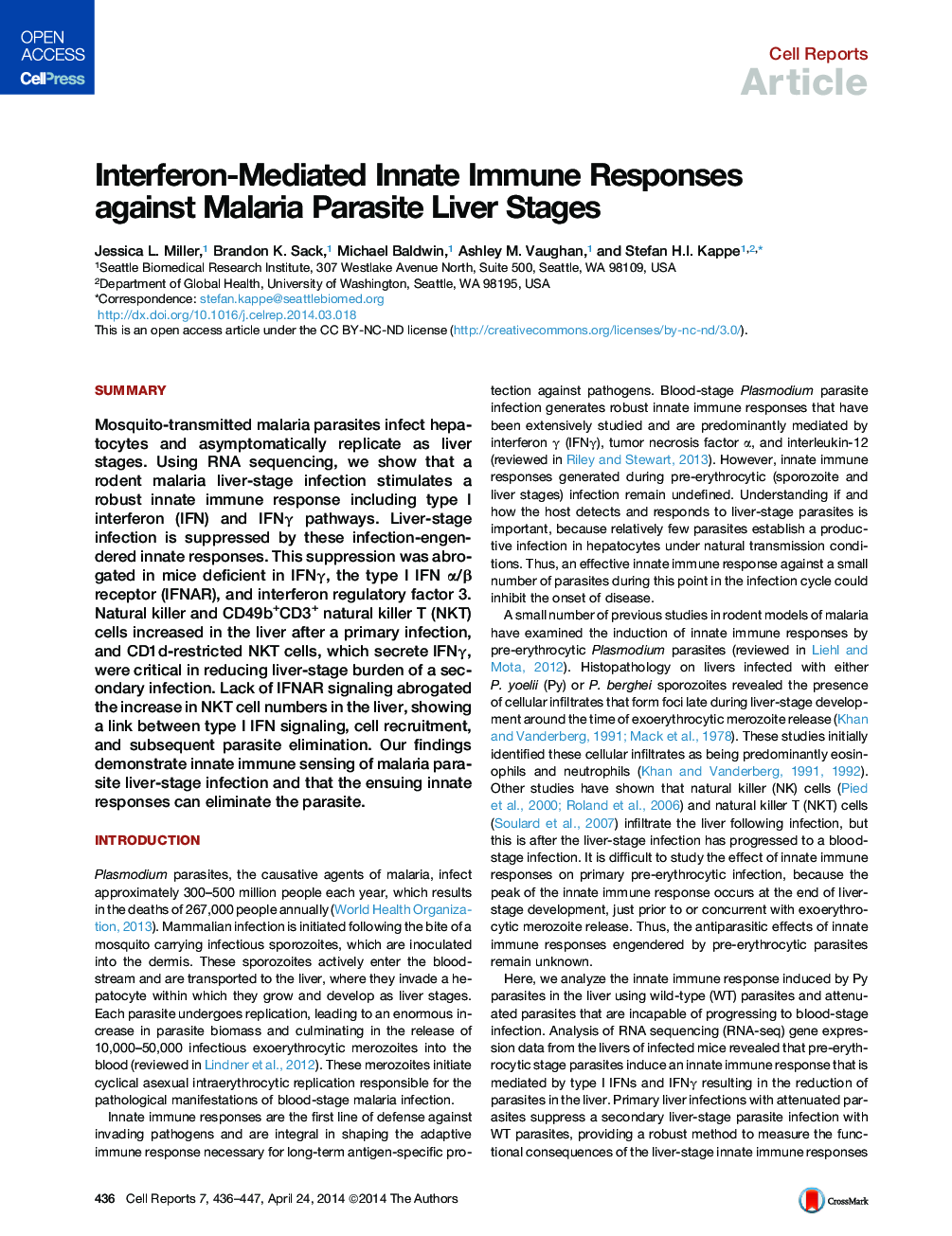| کد مقاله | کد نشریه | سال انتشار | مقاله انگلیسی | نسخه تمام متن |
|---|---|---|---|---|
| 2040555 | 1073117 | 2014 | 12 صفحه PDF | دانلود رایگان |
• Plasmodium liver stages induce an interferon-mediated innate immune response
• The impact of innate immune responses can be assayed using a unique infection model
• NKT cells increase in the liver and are required for eliminating an infection
• The increase of NKT cells in infected livers is dependent upon type I IFN signaling
SummaryMosquito-transmitted malaria parasites infect hepatocytes and asymptomatically replicate as liver stages. Using RNA sequencing, we show that a rodent malaria liver-stage infection stimulates a robust innate immune response including type I interferon (IFN) and IFNγ pathways. Liver-stage infection is suppressed by these infection-engendered innate responses. This suppression was abrogated in mice deficient in IFNγ, the type I IFN α/β receptor (IFNAR), and interferon regulatory factor 3. Natural killer and CD49b+CD3+ natural killer T (NKT) cells increased in the liver after a primary infection, and CD1d-restricted NKT cells, which secrete IFNγ, were critical in reducing liver-stage burden of a secondary infection. Lack of IFNAR signaling abrogated the increase in NKT cell numbers in the liver, showing a link between type I IFN signaling, cell recruitment, and subsequent parasite elimination. Our findings demonstrate innate immune sensing of malaria parasite liver-stage infection and that the ensuing innate responses can eliminate the parasite.
Graphical AbstractFigure optionsDownload as PowerPoint slide
Journal: - Volume 7, Issue 2, 24 April 2014, Pages 436–447
